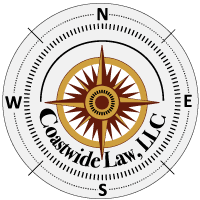Interdiction Attorney
Guardians are typically used in three situations: guardianship for an incapacitated senior (due to old age or infirmity), guardianship for a minor, and guardianship for developmentally disabled adults.
If a minor loses his or her parents, or the parents are unwilling or unable to care for the minor (or the minor needs to file a lawsuit), an Interdiction may be formed wherein another person is appointed to step in and care for the minor and be in charge over their person and estate until the minor reaches the age of majority, or until their particular needs are met in the lawsuit. Please give us a call to discuss your particular situation to determine your needs.
Guardianship for incapacitated seniors
A guardianship for an incapacitated senior will typically arise where someone determines that a senior has become unable to care for their own person and/or property. In some cases, there may be a belief that the senior is being financially exploited or about to be exploited. In other cases, the person may be unable to care for him or herself and is not able to properly engage in the activities of daily living without assistance. There will typically be a precipitating incident that causes a professional, family member, health care worker or clergyman to initiate guardianship proceedings.
In most states, the process will start with a determination whether the alleged incapacitated person is actually incapacitated. There will often be an evidentiary hearing. Only if a finding of incapacity is made will the next step take place: whether a guardian is necessary and to what extent (e.g. a guardian may be needed for the person’s finances but not for the person) and, if so, who the guardian should be. The determination of whether a guardianship is necessary may consider a number of factors, including whether there is a lesser restrictive alternative, such as the use of an already existing power of attorney and health care proxy. In some cases, a guardianship dispute can become quite
Family Law
Although a guardian ad litem working through a CASA program volunteers their services, some guardians ad litem are paid for their services. They must submit detailed time and expense reports to the court for approval. Their fees are taxed as costs in the case. Courts may order all parties to share in the cost, or the court may order a particular party to pay the fees. Volunteer Guardians ad Litem and those that volunteer
Conservatorships / Interdiction are legal proceedings where another person is appointed over the person to help, usually by controlling their assets and/or medical decisions. If you notice any of the above signs, please contact us to discuss how you can help and protect your loved one.

